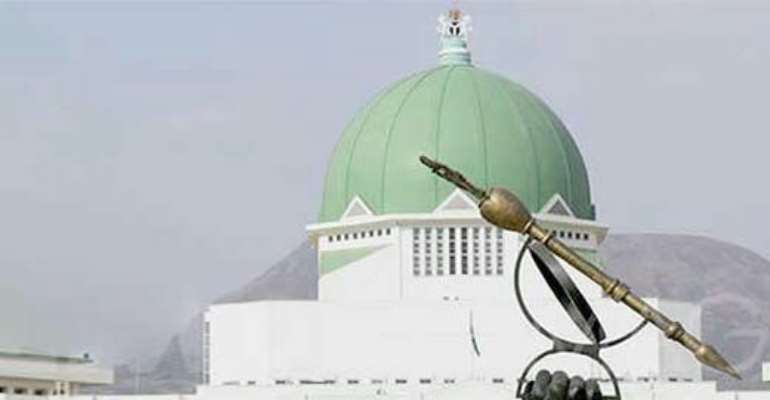FOI ACT: THE HYPOCRISY OF THE NATIONAL ASSEMBLY

As part of the mandate of the National Assembly, enacting laws that consider the interest of the Nigerian society is tantamount to fulfilling the responsibility for which its members were elected. Nigerians want to see their interest prioritized in the various deliberations of the legislature. It is solely for this reason that the honorable members were elected. The people expect to be served and rightly so, as it is the practice of true democracy, government of the people, by the people and for the people. Every self-centeredness is discarded and the common interest is promoted. For this reason, any Act passed by the legislature that is devoid of selfishness, is massively celebrated and regarded as victory for democracy.
Such was the case when in 2011, after 10 years of agitation for the enactment of the Freedom of Information Act, in the Goodluck Ebele Jonathan’s administration, the National Assembly finally consented, whether it gave in to pressure or not, most importantly, in those rare moments, the interest of Nigerians was placed above all else, even though the bill was thoroughly edited and sheared. Regardless, Nigerians were elated at this responsible act of the senate which has empowered citizens to participate in governance, and also at the prospect of a transparent government.
When in May 28, 2011, the then president assented to the Freedom of Information Bill, history was made. Nigeria has finally demonstrated its willingness to operate true democracy and thus set the right standard for other countries. Accolades poured in, from the Nigerian Guild of Editors to the Nigerian Union of journalists, Human right groups, Civil society organizations, all was well again and the senate was the hero. Now the Senate, Ministries, government departments and Agencies are mandated by the provisions of the Act to grant public requests of access to information, documents or records of any public office, with few exceptions of course, and must do so within 7 days of placing the FOI request. And in such cases where FOI request cannot be honored, the reasons for denial must be given with reference to the provisions of the Act and the individual must be advised to approach the court for an order to mandate the office to honor such request. The intention for this bill can only be commendable as it wholly assured transparency in government dealings.
Six years down the line, instead of the senate basking in the glory of being responsible for a more transparent government, it was rather shamed by the Civil society group that monitors the implementation of the Act. The Media Right Agenda, named the National Assembly in its FOIA’s ‘Hall of Shame’. Pronouncing it the worst offender of the FOIA. The group noted with disappointment the impunity with which the National Assembly violates provisions of the Act. According to the director, Edetaen Ojo, the house has failed to honor FOI requests without communicating to the requester reasons for the denial as demanded by the Act and on those occasions that the court had mandated it to grant such requests, it had simply ignored the court order, consequently undermining its own authority.
What then does this mean to the integrity of our legislators? How does this impact on the waning trust of the populace for the National Assembly? What does it mean to the administration’s anti-corruption fight? How does it reflect on the image of the country in the global space? Surely, it makes a mockery of the Nigerian system. This attitude displayed by the senate represents a regressive step to the era where citizens were not involved in governance and corruption was institutionalized as Senate affairs were shrouded in secrecy.
Therefore, this violation must be penalized and the pervasive culture of impunity discouraged. A body that makes the law but considers itself above the law is not worthy of leadership. The fact that the National Assembly will refuse to disclose important information legally sought for and of which the FOI requester has a right to, only proves that it is involved in shady deals and thus the National Assembly needs to be probed. It must be made to implement every tenet of the Act, so that, as one of the initiators of the bill, Abike Dabiri Erewa succinctly puts it, it can provide ‘a platform for the enthronement of probity in governance’ as well as empower citizens to actively participate in governance.
I will like to commend the Media Right Agenda group for this investigation and exposure of such double-standard behavior. Nigerians need to speak up aggressively against practices that undermine the rights of the citizen and ensure that beside making laws that promotes the value of true democracy, all public institutions and individuals remain subject to the law and any violation by any citizen is accounted for accordingly. The constitution is supreme and no one is above the law.
Freda Ukpoju
Media Officer
Say No Campaign Nigeria
